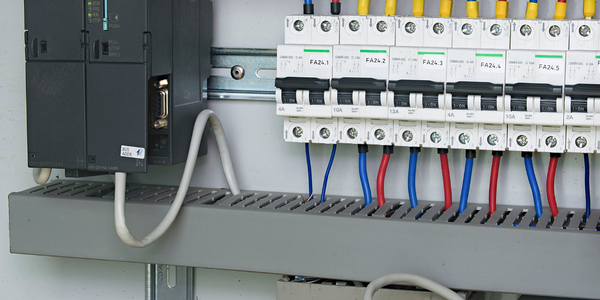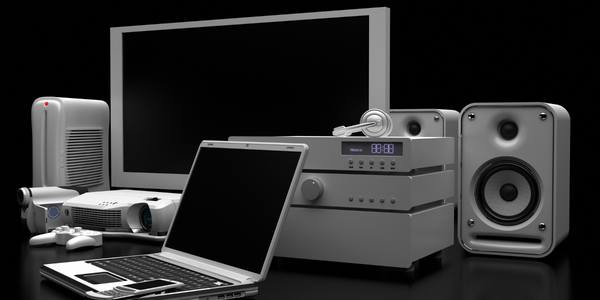Technology Category
- Cybersecurity & Privacy - Security Compliance
- Infrastructure as a Service (IaaS) - Cloud Databases
Applicable Industries
- Education
- Electronics
Applicable Functions
- Procurement
- Quality Assurance
Use Cases
- Leasing Finance Automation
- Visual Quality Detection
Services
- Testing & Certification
- Training
About The Customer
EvoEndo is a medical device company based in Centennial, CO, with 1-10 employees. The company develops a single-use gastroscope system that allows transnasal upper endoscopies to be performed without sedation or anesthesia. As a Class II 510(k) medical device, EvoEndo's product means the business and its outsourced contract manufacturing organization must meet the requirements of both ISO 13485 and FDA 21 CFR 820. The company was in the process of transitioning to a new contract manufacturing organization and was looking for a more efficient and effective electronic Quality Management System.
The Challenge
EvoEndo, a medical device company, was facing challenges with its existing electronic Quality Management System (eQMS). The system, built by a different contract manufacturing organization (CMO), was on-premise and heavily reliant on paper, making it clunky and unfit for purpose. The company's CEO, Heather Underwood, found that efficiency and document control were slipping, negatively impacting the company's FDA 510(k) preparations. The process of reviewing and approving documents was time-consuming, involving printing, signing, and scanning. Accessing vital QMS information was also difficult. As EvoEndo transitioned to a new CMO, they began to search for a pre-existing, cloud-based eQMS that could better meet their needs. Heather wanted to enhance EvoEndo's internal quality management system, including document control and training management, without solely relying on the product-based data in her CMO's QMS.
The Solution
Heather sought an intuitive, easy-to-use eQMS platform that could integrate EvoEndo's operations with her Florida-based CMO and the company's distribution partner in Michigan. After reviewing several potential vendors, Heather chose Qualio for its supportive Qualio+ offering. EvoEndo became a Qualio customer in mid-2020. Despite never having performed an eQMS validation exercise before, Heather found the process straightforward, simple, and enjoyable. With targeted training from the Qualio customer success team and Qualio+ support, EvoEndo's new system was quickly populated with compliant document templates, enabling Heather to start using her new eQMS within weeks.
Operational Impact
Quantitative Benefit

Case Study missing?
Start adding your own!
Register with your work email and create a new case study profile for your business.
Related Case Studies.

Case Study
Remote Temperature Monitoring of Perishable Goods Saves Money
RMONI was facing temperature monitoring challenges in a cold chain business. A cold chain must be established and maintained to ensure goods have been properly refrigerated during every step of the process, making temperature monitoring a critical business function. Manual registration practice can be very costly, labor intensive and prone to mistakes.

Case Study
Predictive maintenance in Schneider Electric
Schneider Electric Le Vaudreuil factory in France is recognized by the World Economic Forum as one of the world’s top nine most advanced “lighthouse” sites, applying Fourth Industrial Revolution technologies at large scale. It was experiencing machine-health and unplanned downtime issues on a critical machine within their manufacturing process. They were looking for a solution that could easily leverage existing machine data feeds, be used by machine operators without requiring complex setup or extensive training, and with a fast return on investment.

Case Study
Cloud Solution for Energy Management Platform-Schneider Electric
Schneider Electric required a cloud solution for its energy management platform to manage high computational operations, which were essential for catering to client requirements. As the business involves storage and analysis of huge amounts of data, the company also needed a convenient and scalable storage solution to facilitate operations efficiently.

Case Study
Leveraging the IoT to Gain a Competitive Edge in International Competition
Many large manufacturers in and outside Japan are competing for larger market share in the same space, expecting a growing demand for projectors in the areas of entertainment, which requires glamor and strong visual performance as well as digital signage that can attract people’s attention. “It is becoming more and more difficult to differentiate ourselves with stand-alone hardware products,” says Kazuyuki Kitagawa, Director of Service & Support at Panasonic AVC Networks. “In order for Panasonic to grow market share and overall business, it is essential for us to develop solutions that deliver significant added value.” Panasonic believes projection failure and quality deterioration should never happen. This is what and has driven them to make their projectors IoT-enabled. More specifically, Panasonic has developed a system that collects data from projectors, visualizes detailed operational statuses, and predicts issues and address them before failure occurs. Their projectors are embedded with a variety of sensors that measure power supply, voltage, video input/ output signals, intake/exhaust air temperatures, cooling fan operations, and light bulb operating time. These sensors have been used to make the projector more intelligent, automatically suspending operation when the temperature rises excessively, and automatically switching light bulbs. Although this was a great first step, Panasonic projectors were still not equipped with any capability to send the data over a network.









